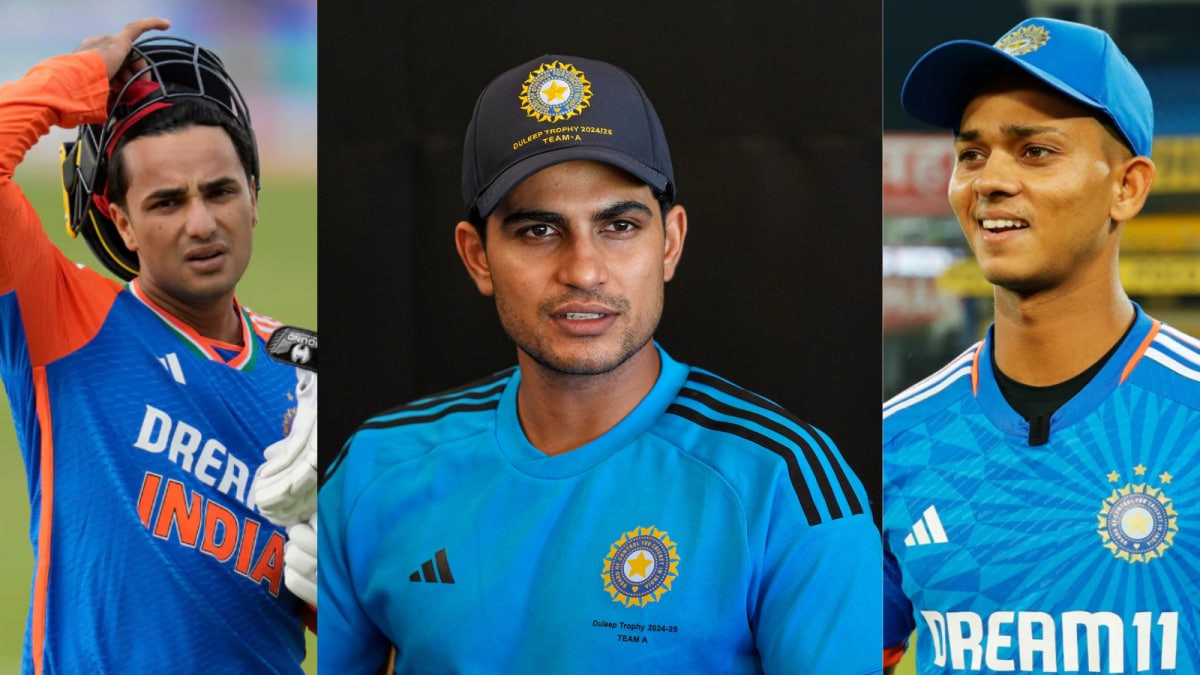 |
|
The Indian cricket team's current success is a testament to the collective effort and individual brilliance of its players. However, the intense pressure of international competition often leads to speculation about potential rivalries within the squad. Recently, Shubman Gill, the Indian ODI vice-captain, addressed concerns regarding a perceived 'toxic competition' between himself and fellow batsmen Abhishek Sharma and Yashasvi Jaiswal. Gill's emphatic denial of such a rivalry underscores a crucial element of team dynamics – the importance of camaraderie and mutual support in achieving collective goals. His statement, made during a press conference in Nagpur, prior to the start of a three-ODI series against England, effectively diffused potential tensions and highlighted a positive team spirit.
Gill's clarification is significant not only for its content but also for its timing. With all three players competing for top-order batting positions in various formats, the potential for friction is understandable. Abhishek Sharma, a childhood friend of Gill's, has recently established himself as a first-choice T20I opener, a position Gill himself has held in the past. Yashasvi Jaiswal, meanwhile, is a mainstay in the Test team's opening slot. Gill's own position appears relatively secure in ODIs, but his form in other formats has fluctuated, making the competition for spots all the more pronounced. This creates a context where rivalries, real or perceived, could easily emerge, potentially harming team cohesion.
However, Gill's assertion that he doesn't wish ill upon his teammates but rather celebrates their individual successes counters this narrative. He explicitly stated his friendship with both Sharma and Jaiswal, emphasizing that representing the country is paramount, and any personal success is secondary to the team's overall performance. This displays a mature and team-oriented attitude, crucial for maintaining a positive atmosphere within the squad. Such statements are vital in conveying a message of unity and collaboration, crucial for maintaining team morale, especially during periods of high-pressure competition. A cohesive unit is better equipped to handle setbacks and build upon its successes.
The dynamics within the Indian cricket team serve as a microcosm of the larger challenges faced by any high-performing team. The delicate balance between individual ambition and collective achievement is a constant negotiation. While individual performances are vital for the team's success, the team's overall success depends on the players' ability to support one another and celebrate each other’s triumphs. Gill's comments underscore the importance of fostering a supportive and encouraging environment within the team, one where healthy competition exists but is never allowed to devolve into destructive rivalry. This understanding is essential for sustained success on the international stage.
Furthermore, Gill's perspective reflects a broader shift in how team dynamics are viewed in professional sports. The emphasis on mental well-being and fostering positive relationships among players is increasingly recognized as crucial to both performance and player health. The pressure to perform at the highest level can take a toll on athletes' mental health, and a supportive team environment can act as a buffer against such pressure. Gill's comments are a testament to the increasing awareness of these issues and a demonstration of leadership in fostering a positive team culture.
The narrative surrounding Gill's comments also highlights the importance of responsible reporting and avoiding the creation of narratives based on speculation. While healthy competition is a natural part of sports, sensationalizing potential rivalries can be counterproductive and detrimental to team cohesion. Responsible reporting requires a nuanced approach that acknowledges both the competitive nature of professional sports and the importance of strong team unity. It is vital to refrain from fueling negativity and instead focus on the positive contributions of all team members.
In conclusion, Shubman Gill's statements effectively addressed concerns about potential rivalries within the Indian cricket team. His emphasis on friendship and support, rather than toxic competition, points towards a healthy and cohesive team environment. This positive dynamic bodes well for the future success of the Indian cricket team and showcases the importance of strong relationships and mutual support within high-performing athletic teams. It's a reminder that individual ambition and collective success are not mutually exclusive but rather mutually reinforcing elements in the quest for excellence.
